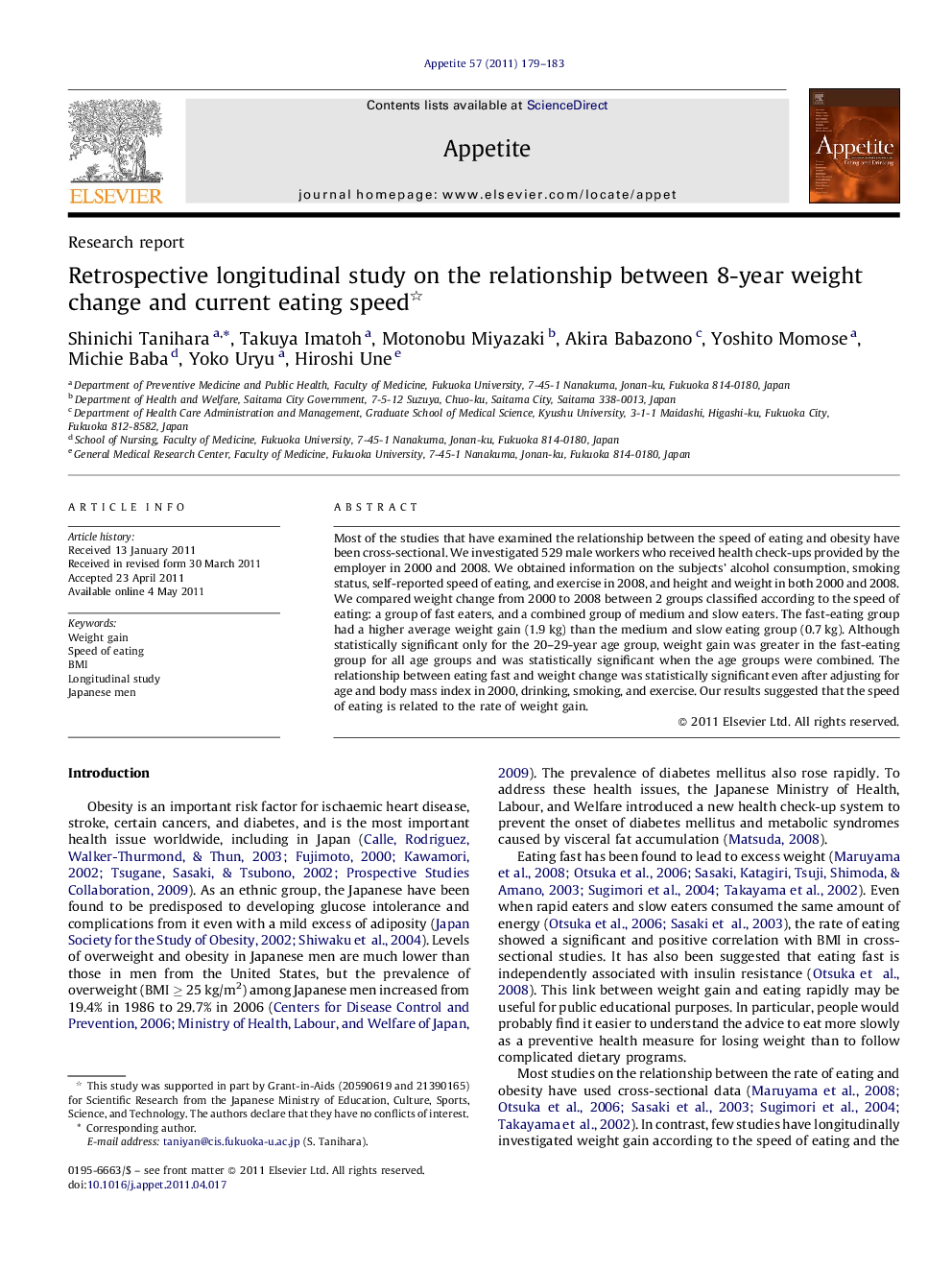| Article ID | Journal | Published Year | Pages | File Type |
|---|---|---|---|---|
| 940295 | Appetite | 2011 | 5 Pages |
Most of the studies that have examined the relationship between the speed of eating and obesity have been cross-sectional. We investigated 529 male workers who received health check-ups provided by the employer in 2000 and 2008. We obtained information on the subjects’ alcohol consumption, smoking status, self-reported speed of eating, and exercise in 2008, and height and weight in both 2000 and 2008. We compared weight change from 2000 to 2008 between 2 groups classified according to the speed of eating: a group of fast eaters, and a combined group of medium and slow eaters. The fast-eating group had a higher average weight gain (1.9 kg) than the medium and slow eating group (0.7 kg). Although statistically significant only for the 20–29-year age group, weight gain was greater in the fast-eating group for all age groups and was statistically significant when the age groups were combined. The relationship between eating fast and weight change was statistically significant even after adjusting for age and body mass index in 2000, drinking, smoking, and exercise. Our results suggested that the speed of eating is related to the rate of weight gain.
► We investigate the relationship between 8-year weight change and eating speed. ► We conduct retrospective longitudinal study on 529 Japanese male workers. ► Weight gain is greater in the fast-eating group for all age groups. ► The relationship is statistically significant after adjusting confounding factors. ► The speed of eating is related to the rate of weight gain.
